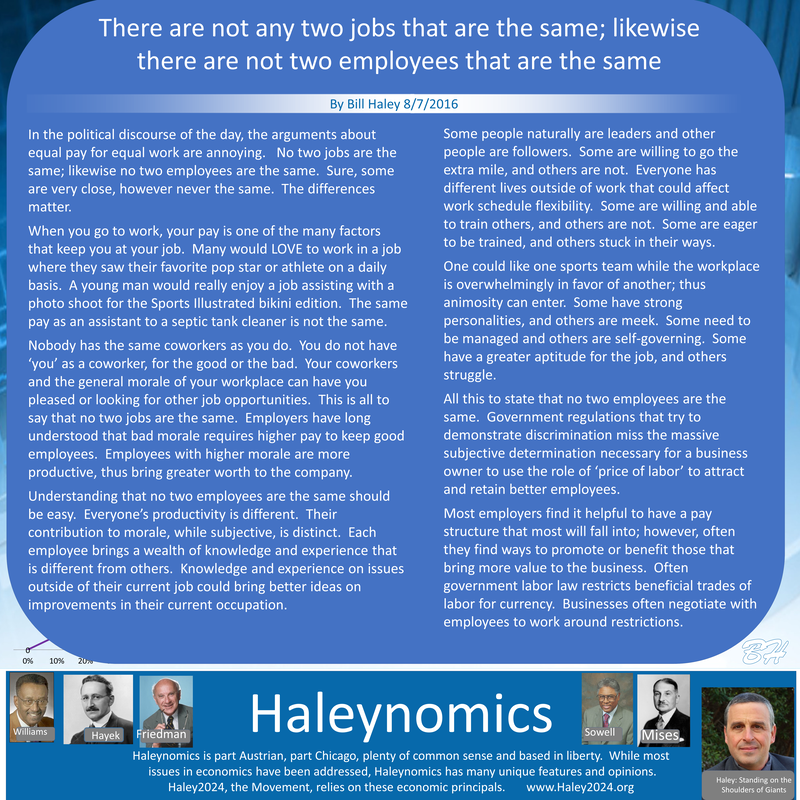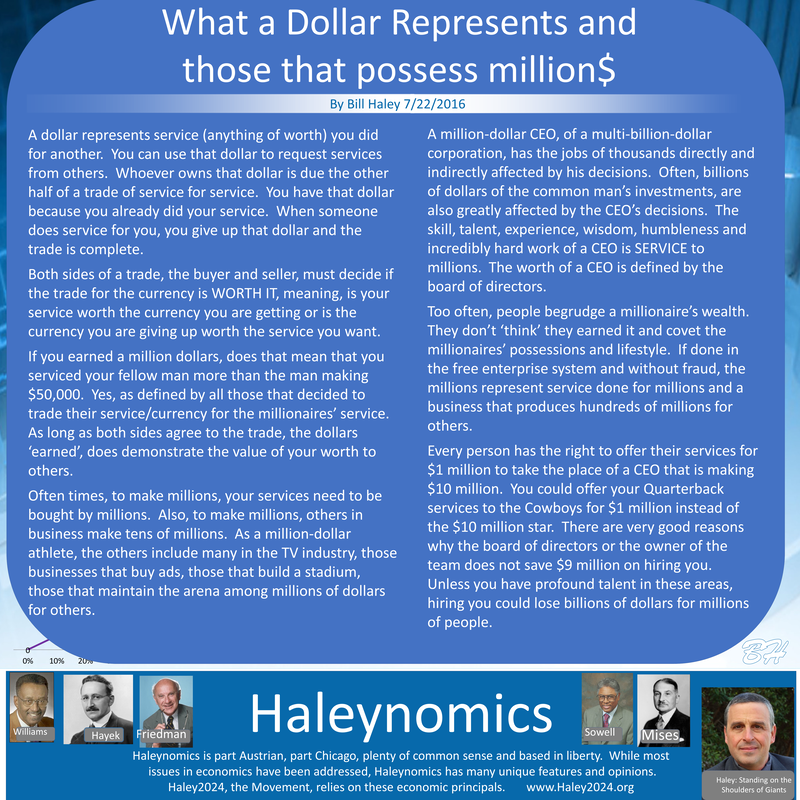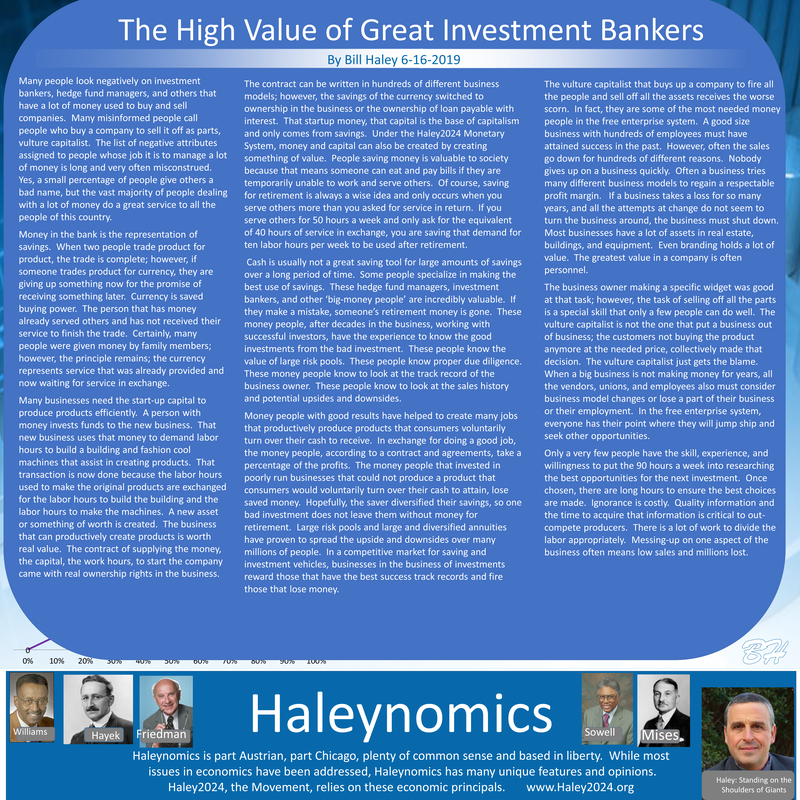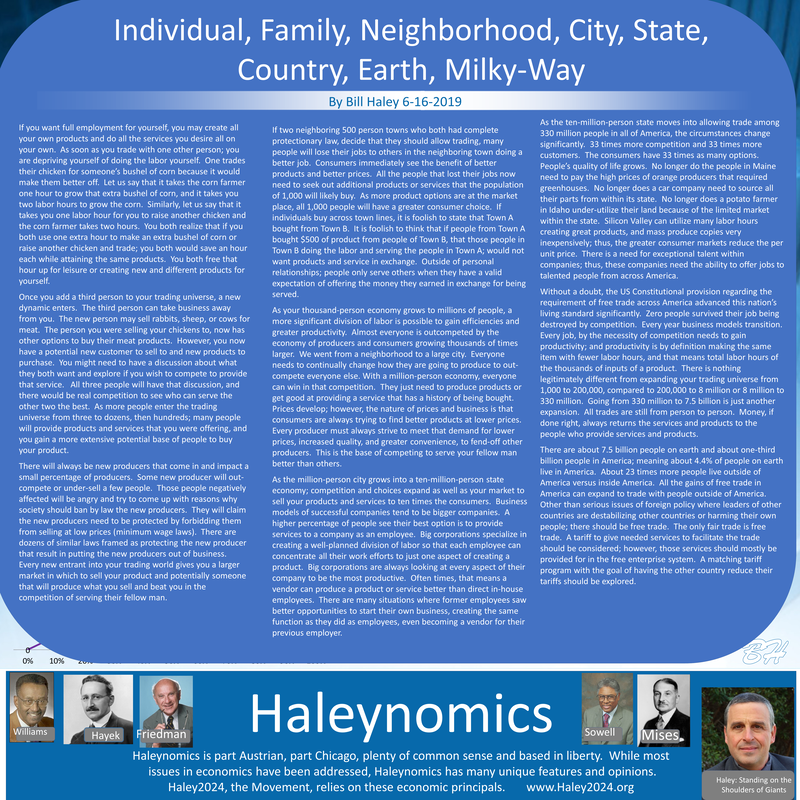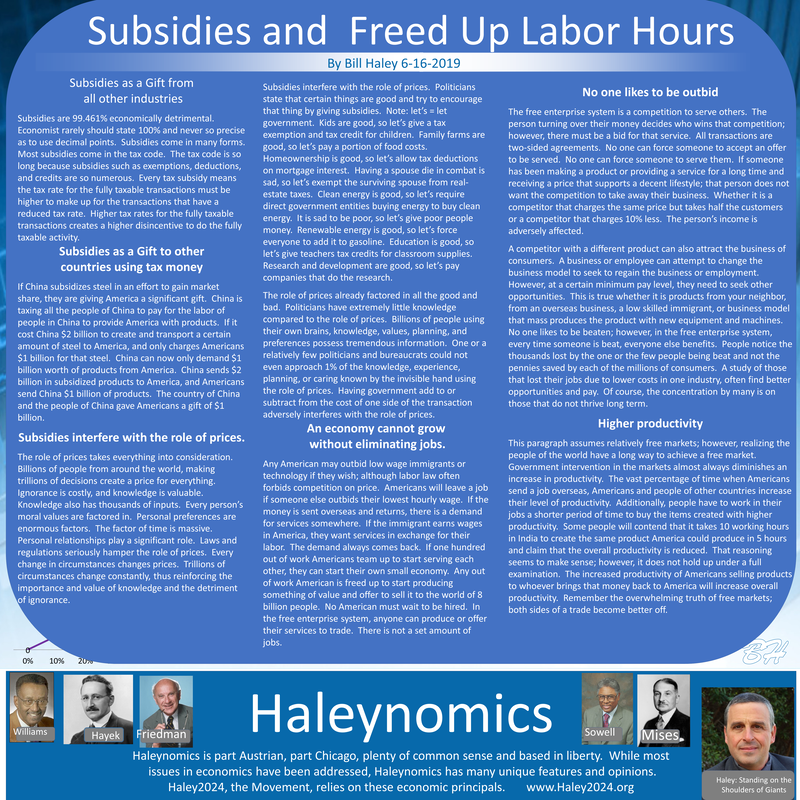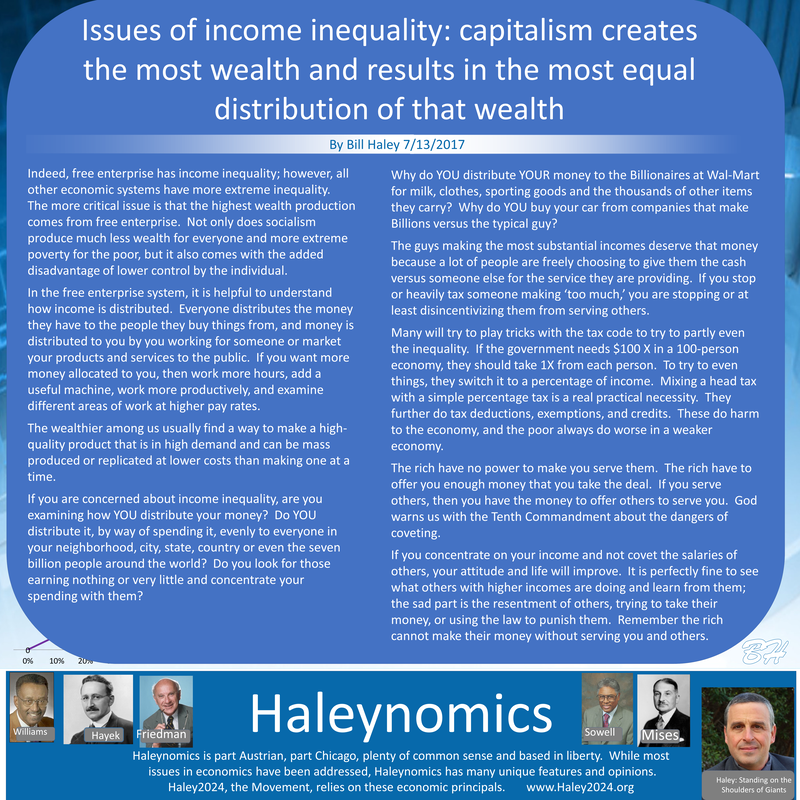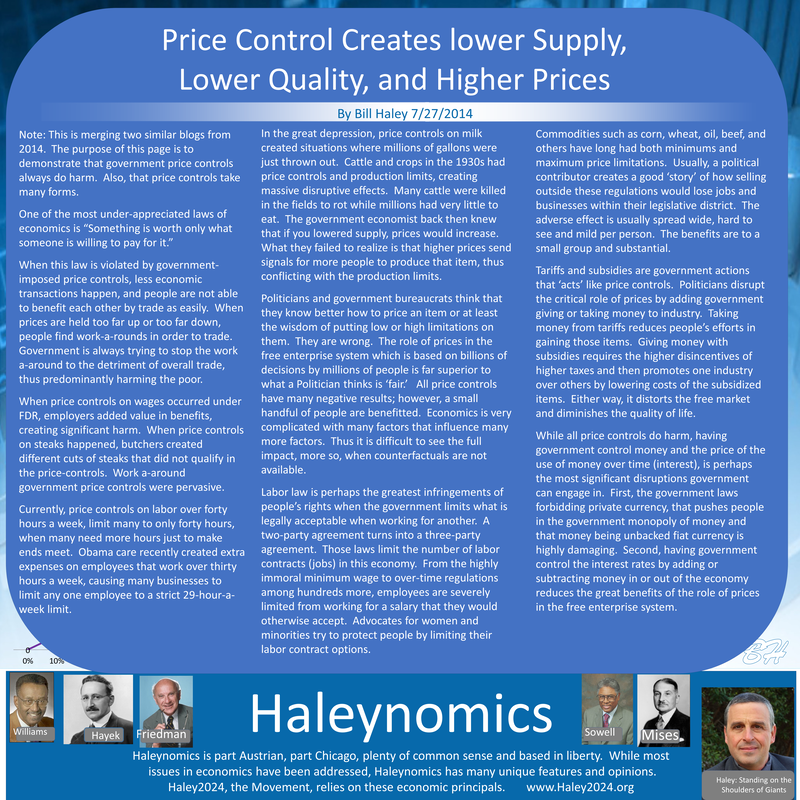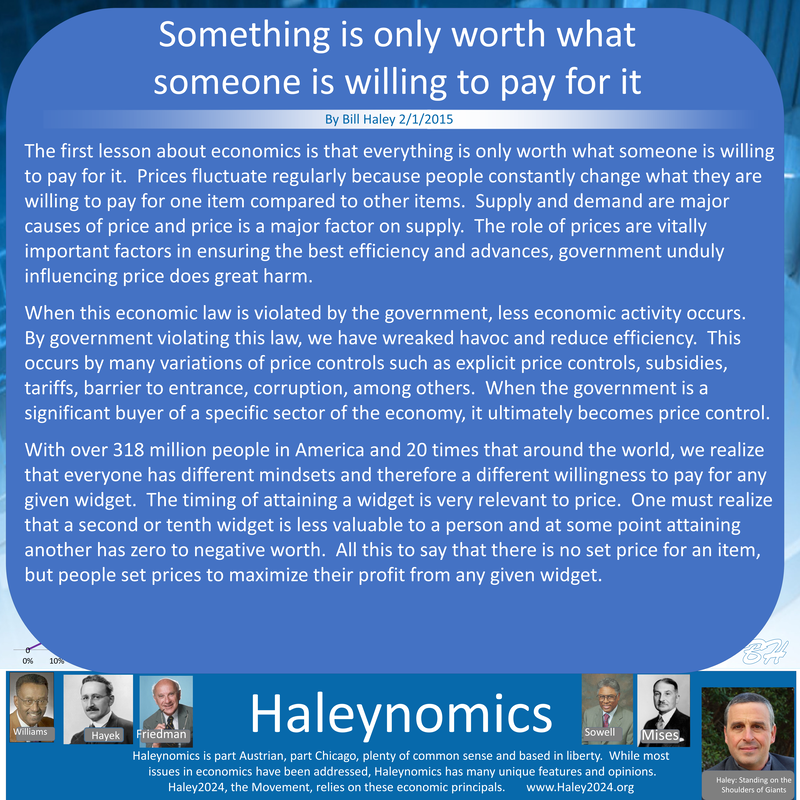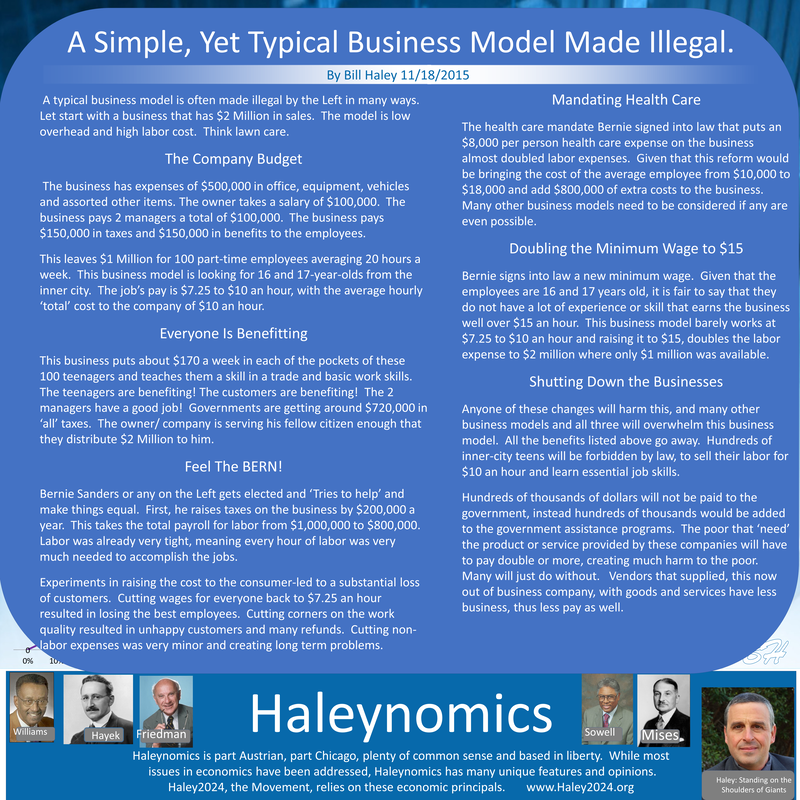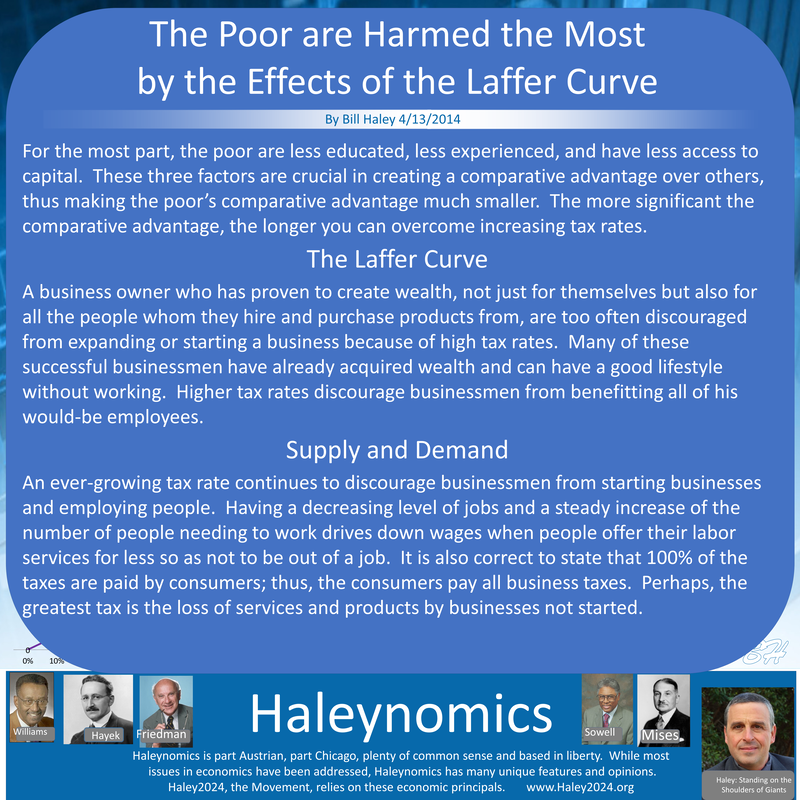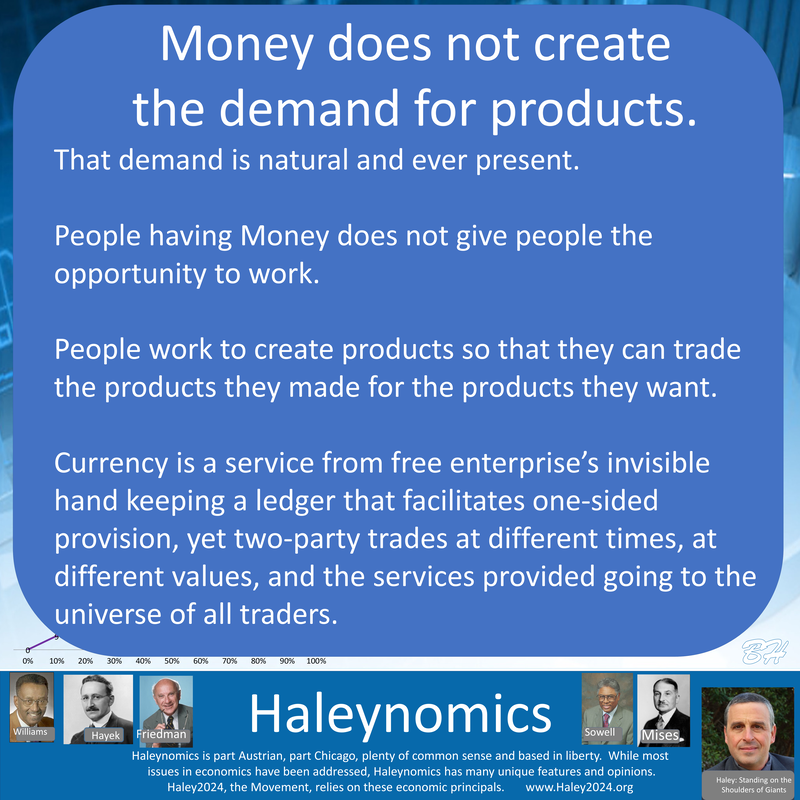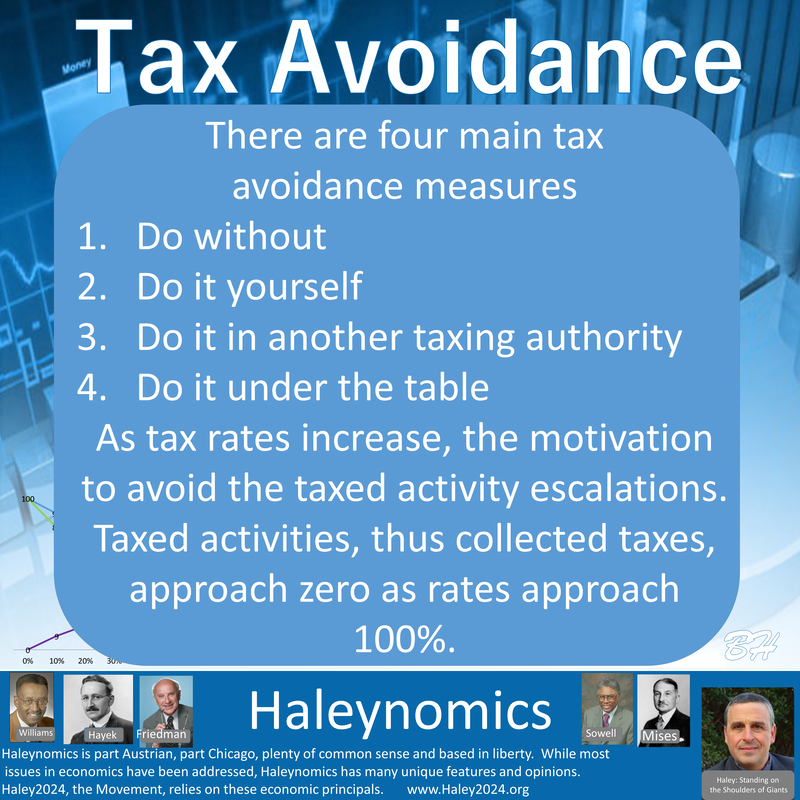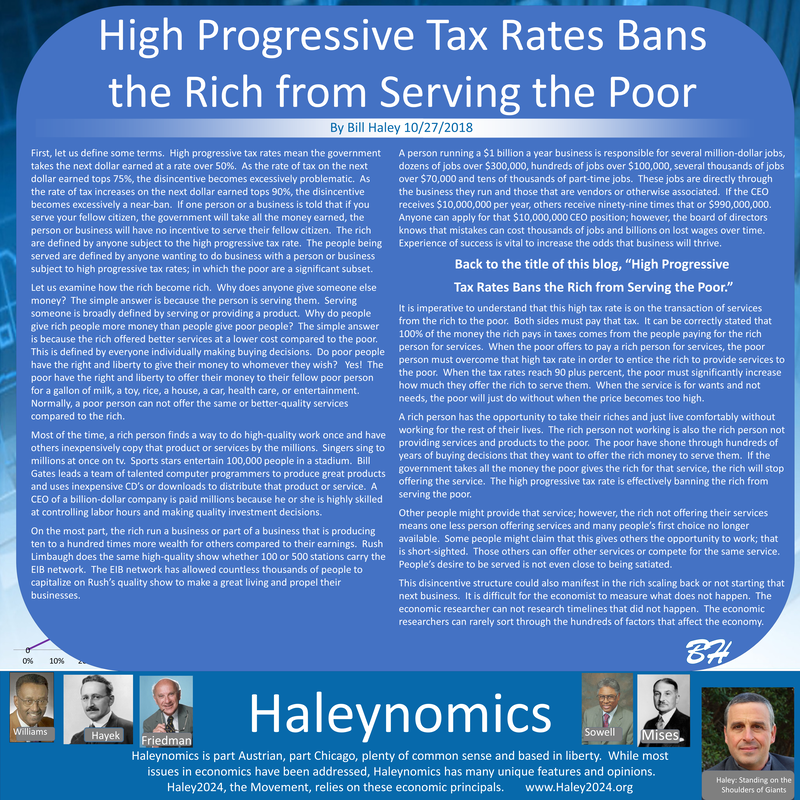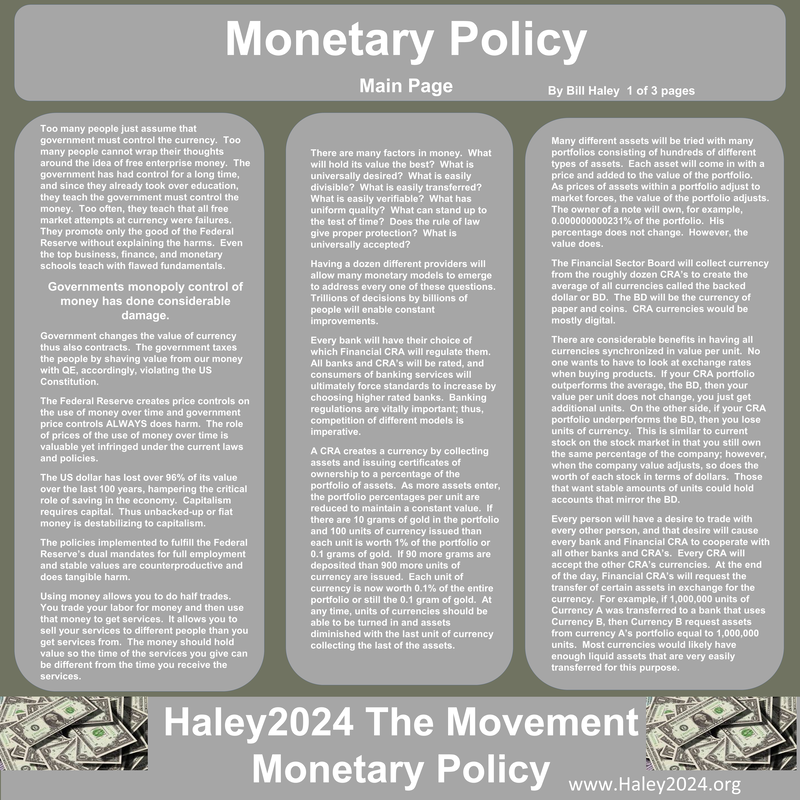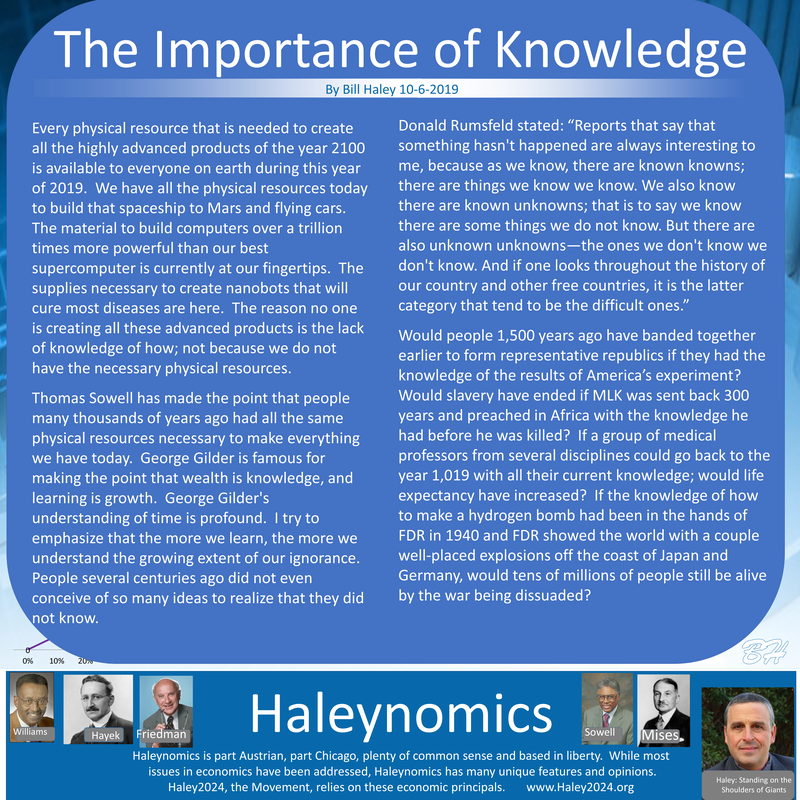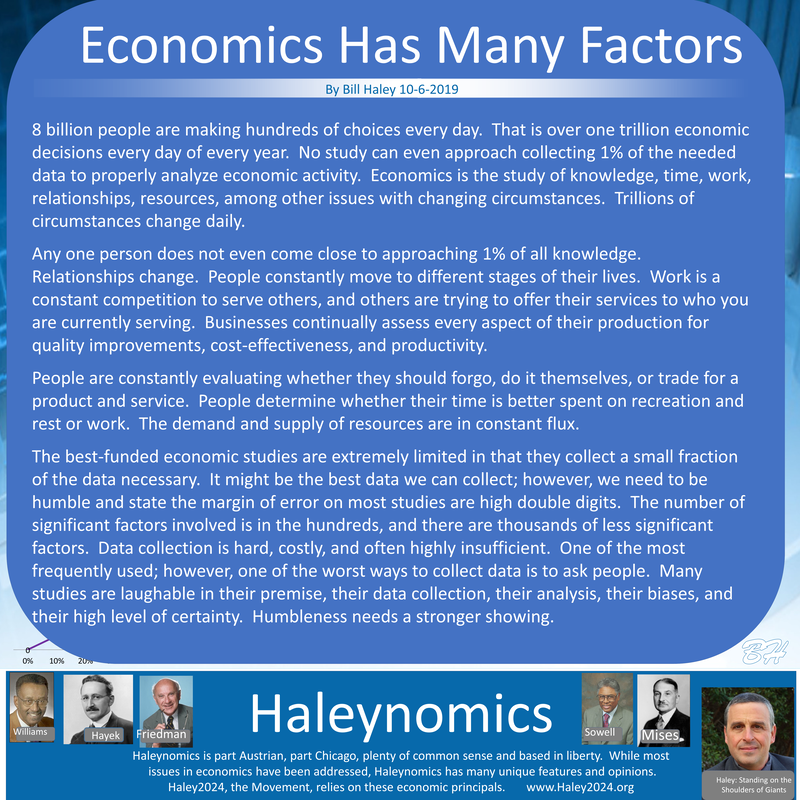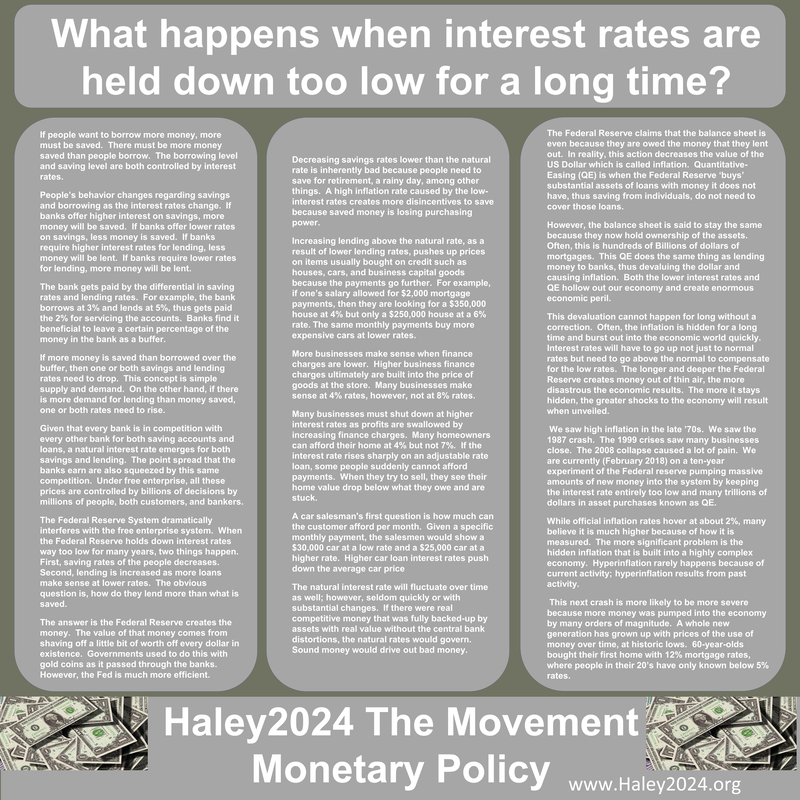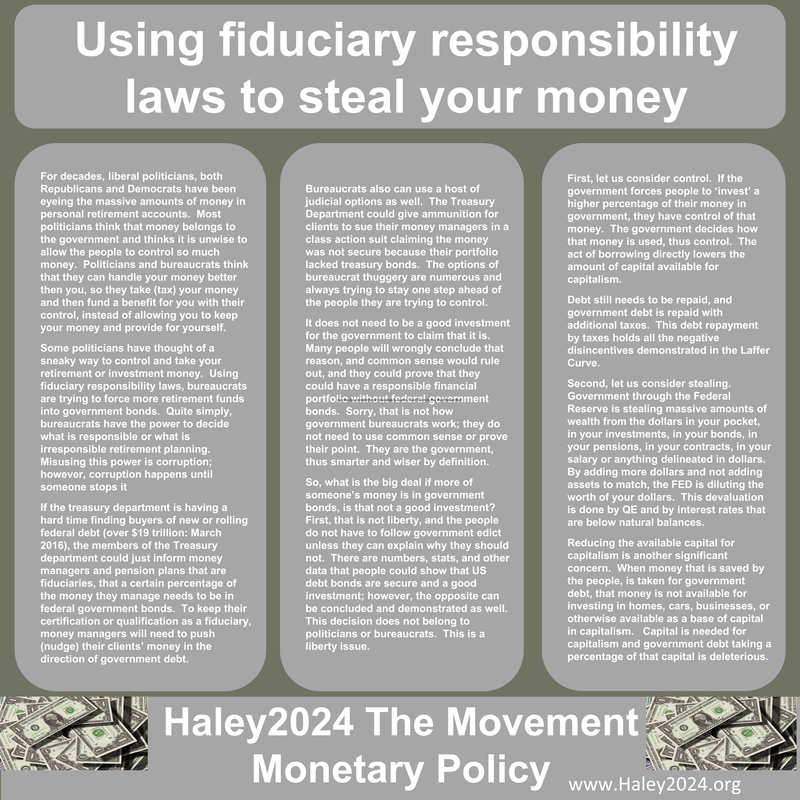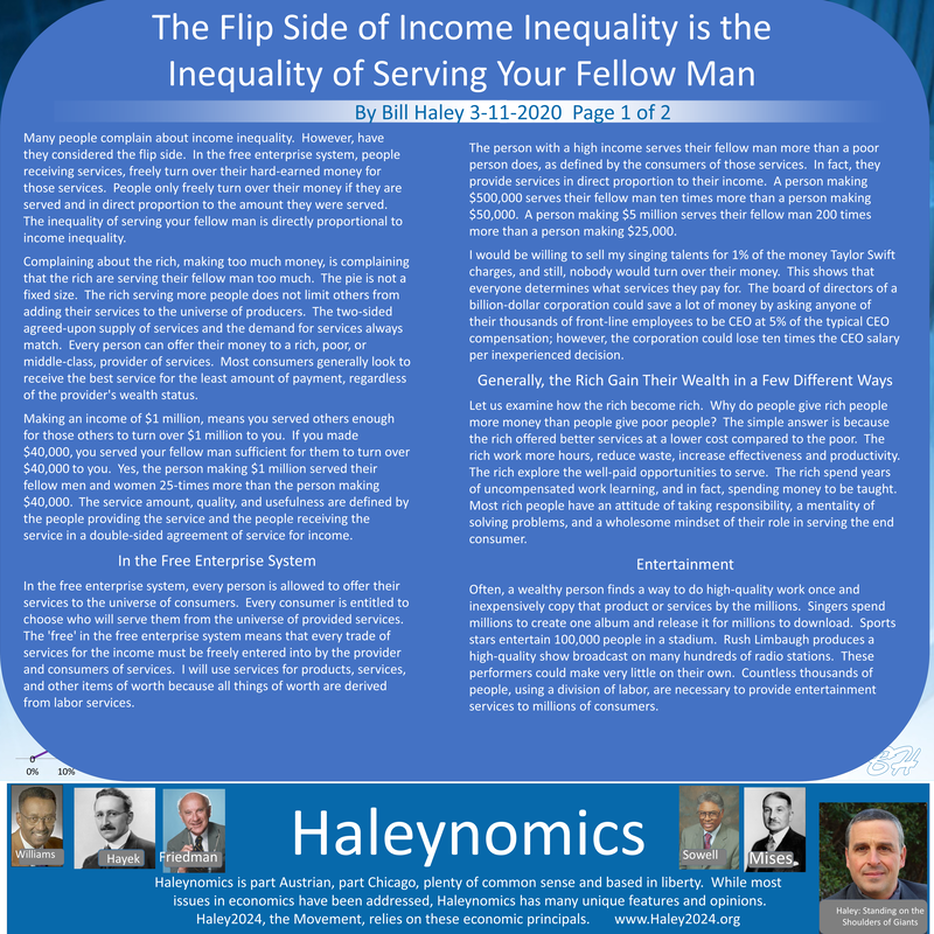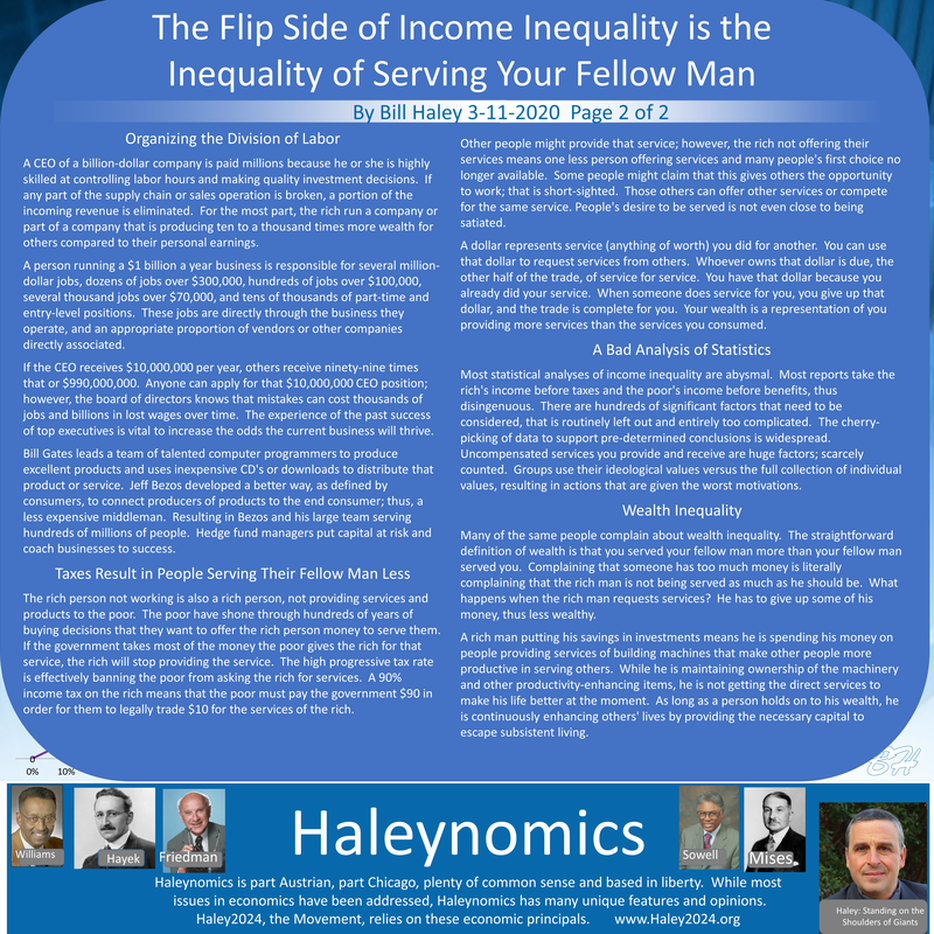| Many people complain about income inequality. However, have they considered the flip side. In the free enterprise system, people receiving services, freely turn over their hard-earned money for those services. People only freely turn over their money if they are served and in direct proportion to the amount they were served. The inequality of serving your fellow man is directly proportional to income inequality. |
| Complaining about the rich, making too much money, is complaining that the rich are serving their fellow man too much. The pie is not a fixed size. The rich serving more people does not limit others from adding their services to the universe of producers. The two-sided agreed-upon supply of services and the demand for services always match. Every person can offer their money to a rich, poor, or middle-class, provider of services. Most consumers generally look to receive the best service for the least amount of payment, regardless of the provider's wealth status. |
| Making an income of $1 million, means you served others enough for those others to turn over $1 million to you. If you made $40,000, you served your fellow man sufficient for them to turn over $40,000 to you. Yes, the person making $1 million served their fellow men and women 25-times more than the person making $40,000. The service amount, quality, and usefulness are defined by the people providing the service and the people receiving the service in a double-sided agreement of service for income. |
In the Free Enterprise System
| In the free enterprise system, every person is allowed to offer their services to the universe of consumers. Every consumer is entitled to choose who will serve them from the universe of provided services. The 'free' in the free enterprise system means that every trade of services for the income must be freely entered into by the provider and consumers of services. I will use services for products, services, and other items of worth because all things of worth are derived from labor services. |
| The person with a high income serves their fellow man more than a poor person does, as defined by the consumers of those services. In fact, they provide services in direct proportion to their income. A person making $500,000 serves their fellow man ten times more than a person making $50,000. A person making $5 million serves their fellow man 200 times more than a person making $25,000. |
| I would be willing to sell my singing talents for 1% of the money Taylor Swift charges, and still, nobody would turn over their money. This shows that everyone determines what services they pay for. The board of directors of a billion-dollar corporation could save a lot of money by asking anyone of their thousands of front-line employees to be CEO at 5% of the typical CEO compensation; however, the corporation could lose ten times the CEO salary per inexperienced decision. |
Generally, the Rich Gain Their Wealth in a Few Different Ways
| Let us examine how the rich become rich. Why do people give rich people more money than people give poor people? The simple answer is because the rich offered better services at a lower cost compared to the poor. The rich work more hours, reduce waste, increase effectiveness and productivity. The rich explore the well-paid opportunities to serve. The rich spend years of uncompensated work learning, and in fact, spending money to be taught. Most rich people have an attitude of taking responsibility, a mentality of solving problems, and a wholesome mindset of their role in serving the end consumer. |
Entertainment
| Often, a wealthy person finds a way to do high-quality work once and inexpensively copy that product or services by the millions. Singers spend millions to create one album and release it for millions to download. Sports stars entertain 100,000 people in a stadium. Rush Limbaugh produces a high-quality show broadcast on many hundreds of radio stations. These performers could make very little on their own. Countless thousands of people, using a division of labor, are necessary to provide entertainment services to millions of consumers. |
Organizing the Division of Labor
| A CEO of a billion-dollar company is paid millions because he or she is highly skilled at controlling labor hours and making quality investment decisions. If any part of the supply chain or sales operation is broken, a portion of the incoming revenue is eliminated. For the most part, the rich run a company or part of a company that is producing ten to a thousand times more wealth for others compared to their personal earnings. |
| A person running a $1 billion a year business is responsible for several million-dollar jobs, dozens of jobs over $300,000, hundreds of jobs over $100,000, several thousand jobs over $70,000, and tens of thousands of part-time and entry-level positions. These jobs are directly through the business they operate, and an appropriate proportion of vendors or other companies directly associated. |
| If the CEO receives $10,000,000 per year, others receive ninety-nine times that or $990,000,000. Anyone can apply for that $10,000,000 CEO position; however, the board of directors knows that mistakes can cost thousands of jobs and billions in lost wages over time. The experience of the past success of top executives is vital to increase the odds the current business will thrive. |
| Bill Gates leads a team of talented computer programmers to produce excellent products and uses inexpensive CD's or downloads to distribute that product or service. Jeff Bezos developed a better way, as defined by consumers, to connect producers of products to the end consumer; thus, a less expensive middleman. Resulting in Bezos and his large team serving hundreds of millions of people. Hedge fund managers put capital at risk and coach businesses to success. |
Taxes Result in People Serving Their Fellow Man Less
| The rich person not working is also a rich person, not providing services and products to the poor. The poor have shone through hundreds of years of buying decisions that they want to offer the rich person money to serve them. If the government takes most of the money the poor gives the rich for that service, the rich will stop providing the service. The high progressive tax rate is effectively banning the poor from asking the rich for services. A 90% income tax on the rich means that the poor must pay the government $90 in order for them to legally trade $10 for the services of the rich. |
| Other people might provide that service; however, the rich not offering their services means one less person offering services and many people's first choice no longer available. Some people might claim that this gives others the opportunity to work; that is short-sighted. Those others can offer other services or compete for the same service. People's desire to be served is not even close to being satiated. |
| A dollar represents service (anything of worth) you did for another. You can use that dollar to request services from others. Whoever owns that dollar is due, the other half of the trade, of service for service. You have that dollar because you already did your service. When someone does service for you, you give up that dollar, and the trade is complete for you. Your wealth is a representation of you providing more services than the services you consumed. |
A Bad Analysis of Statistics
| Most statistical analyses of income inequality are abysmal. Most reports take the rich's income before taxes and the poor's income before benefits, thus disingenuous. There are hundreds of significant factors that need to be considered, that is routinely left out and entirely too complicated. The cherry-picking of data to support pre-determined conclusions is widespread. Uncompensated services you provide and receive are huge factors; scarcely counted. Groups use their ideological values versus the full collection of individual values, resulting in actions that are given the worst motivations. |
Wealth Inequality
| Many of the same people complain about wealth inequality. The straightforward definition of wealth is that you served your fellow man more than your fellow man served you. Complaining that someone has too much money is literally complaining that the rich man is not being served as much as he should be. What happens when the rich man requests services? He has to give up some of his money, thus less wealthy. |
| A rich man putting his savings in investments means he is spending his money on people providing services of building machines that make other people more productive in serving others. While he is maintaining ownership of the machinery and other productivity-enhancing items, he is not getting the direct services to make his life better at the moment. As long as a person holds on to his wealth, he is continuously enhancing others' lives by providing the necessary capital to escape subsistent living. |
